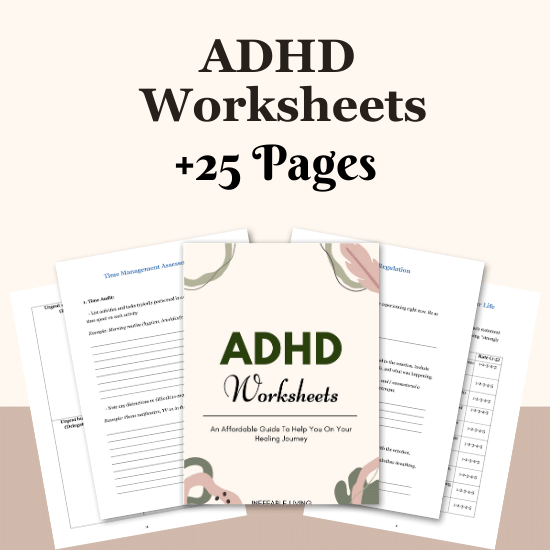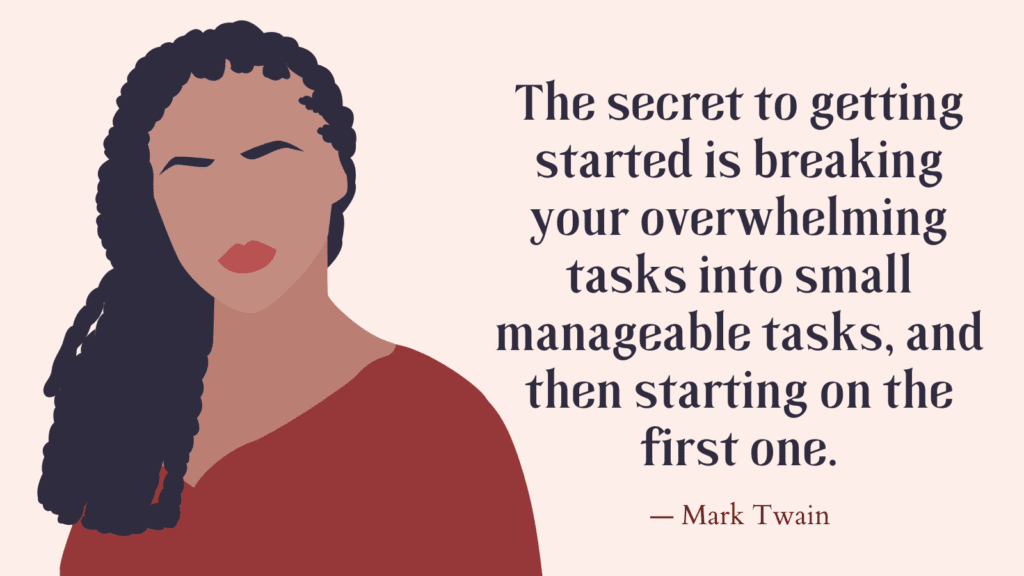Executive function refers to a set of cognitive skills responsible for managing tasks, organizing, planning, and regulating behavior.
When these skills are not working optimally, it can lead to significant challenges, especially for individuals with ADHD.
This guide will explain what executive function is, how it relates to ADHD, and what it looks like when it’s not functioning well.
What is Executive Function?
Executive function encompasses several cognitive skills, including:
1. Planning, Organizing, and Prioritizing
This involves the ability to anticipate how long tasks will take, the effort required, and the steps needed to complete them.
Problems in this area can manifest as being unprepared, mismanaging time, or focusing on unimportant tasks while neglecting crucial ones.
2. Initiating Actions
Initiating actions means being able to start tasks without excessive procrastination.
Those with difficulties in this area may need significant pressure or external prompts to get started, often leading to last-minute rushes and increased stress.
3. Self-Inhibition (Impulse Control)
Impulse control is the ability to hold back automatic responses and anticipate the impact of actions.
Issues here can lead to interrupting others, making snap judgments, or acting without considering consequences.
4. Self-Monitoring
Self-monitoring involves assessing one’s behavior against expectations and making necessary adjustments.
Individuals with poor self-monitoring may be unaware of their impact on others, struggle to accept feedback, and fail to recognize patterns in their behavior, such as chronic lateness.
Related: How to Make Decisions When You Struggle with Executive Dysfunction?
5. Shifting Attention Between Tasks (Cognitive Flexibility)
Cognitive flexibility allows one to shift focus from one task to another and adapt to changes.
Difficulties with this skill can result in rigid thinking and trouble multitasking or adjusting to new situations.
6. Working Memory
Working memory is the ability to hold and manipulate information in mind for short periods.
It is crucial for problem-solving and decision-making.
Poor working memory can lead to difficulty retaining information, making adjustments based on past experiences, and solving problems effectively.
Related: How To Manage Time With ADHD? Best 17 Time Management Tips For ADHD Adults
Executive Function and ADHD
ADHD is often considered a disorder of executive function.
Individuals with ADHD typically experience impairments in multiple executive functions, which can affect their daily lives and productivity.
Impact of ADHD on Executive Function
– Planning and Organization: Struggling to plan ahead or organize tasks can result in incomplete projects and missed deadlines.
– Initiation: Procrastination and difficulty starting tasks are common, often leading to last-minute work.
– Impulse Control: Impulsivity can cause disruptions in conversations and decision-making.
– Self-Monitoring: Those with ADHD may not recognize the impact of their behavior on others or the recurrence of certain patterns.
– Cognitive Flexibility: Difficulty shifting between tasks can make multitasking and adapting to new situations challenging.
– Working Memory: Forgetting important information or struggling to manipulate data can hinder problem-solving and decision-making.
Executive functions are controlled by the prefrontal cortex, the frontal lobes, and structures like the basal ganglia.
These areas are crucial for cognitive processing and are where stimulant medications exert their effects by increasing dopamine levels.
Related: ADHD Burnout Cycle: top 9 Strategies to Prevent It
Conditions Affecting Executive Function
Several conditions can impair executive function, including:
– Depression: Can reduce cognitive flexibility and impair memory.
– Traumatic Brain Injury (TBI): Disrupts brain tissue, affecting executive skills.
– Alcohol: Temporarily impairs executive function.
– Stroke: Especially those affecting the frontal lobes can lead to executive dysfunction.
Managing Executive Dysfunction in ADHD
1. Medication and Therapy
While stimulant medications can help improve executive function by increasing dopamine in the prefrontal cortex, many individuals with ADHD still experience difficulties.
2. Establish Routine and Structure:
Create a daily routine to provide structure and predictability.
Use calendars, planners, or digital apps to map out daily tasks and deadlines.
Allocate specific time slots for different activities and stick to them.
3. Use Organizational Tools:
Break tasks into smaller, manageable steps and list them.
Use color-coding for categorizing tasks and priorities.
Set reminders for appointments, deadlines, and important tasks.
4. Improve Time Management:
Use timers for work sessions and breaks to maintain focus.
Work for 25 minutes, followed by a 5-minute break. Repeat and take a longer break after four cycles.
Focus on high-priority tasks first. Use the Eisenhower Matrix to differentiate between urgent and important tasks.
Related: How To Get Out Of ADHD Paralysis?
5. Enhance Working Memory:
Use sticky notes, note-taking apps, and voice memos to offload information.
Break information into smaller, more manageable units.
Review information regularly to reinforce memory.
6. Improve Emotional Regulation:
Engage in mindfulness meditation or deep-breathing exercises to manage stress and stay present.
Challenge and reframe negative thoughts that lead to emotional distress.
Regular exercise can help regulate mood and improve focus.
7. Address Impulsivity:
Practice pausing before responding or making decisions to reduce impulsivity.
Use strategies to delay gratification, such as promising a reward after completing a task.
Keep a log of impulsive actions and identify patterns to understand triggers and develop coping strategies.
8. Environmental Modifications:
Keep your workspace organized and free of unnecessary distractions.
Create a quiet, dedicated space for focused work.
Consider using white noise or calming music to block out distracting sounds.
Related: How to Deal With Rejection Sensitive Dysphoria?
9. Coping with Specific Tasks
Task Initiation:
Begin with simpler tasks to build momentum.
Promise yourself a small reward for starting a task.
Task Completion:
Define what task completion looks like to stay focused.
Accept that completing a task is better than waiting for perfect conditions.
Long-Term Projects:
Divide large projects into smaller milestones with deadlines.
Schedule regular check-ins to track progress and adjust plans as needed.

Conclusion
Managing executive dysfunction in ADHD involves a multifaceted approach that includes establishing routines, using organizational tools, enhancing time management, and building supportive environments.
With consistent effort and the right strategies, individuals with ADHD can improve their executive functioning and achieve their goals more effectively.



